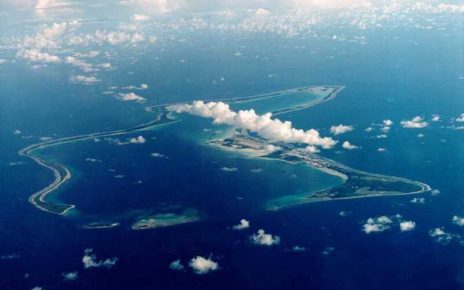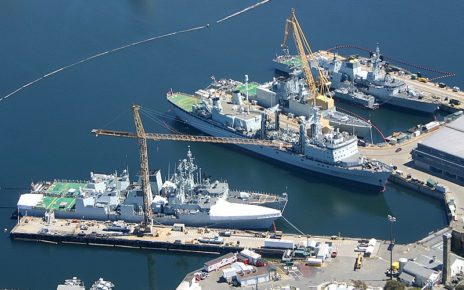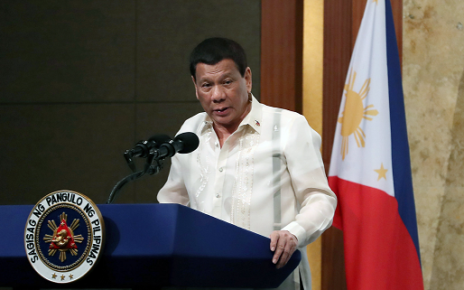Recent media coverage of the West’s involvement in mitigating tensions between China and Taiwan has generally focused on the same handful of questions: Has China increased its aerial and naval drills near Taiwan’s shores, and why? What is the likelihood of a direct military conflict between the United States and China over Taiwan’s sovereignty? What are the details of America’s or China’s most recent military spending increases? Often, the same or a similar conclusion is drawn, that is, that Beijing’s determination to subdue Taiwan, either through force or diplomacy, remains strong and the West needs to prevent Beijing from annexing Taiwan to avoid suffering severe economic and military consequences.
However, support for Taiwanese sovereignty should not depend solely on the West’s immediate economic and military interests. Taiwan is a thriving democracy with a rich culture, history, and identity. Yet, the mainstream Western arguments that favor Taiwan’s sovereignty consistently fail to appreciate the full scope of Taiwan’s value. Specifically, those arguments commodify the people of Taiwan and adopt a functionalist, highly pragmatic perspective that might not resonate with other observers.
What Are the Mainstream Arguments?
There are two types of arguments that are commonly used to support Western efforts to defend Taiwanese sovereignty, ones based on military strategy and others on economics—sometimes both.
First, Taiwan is militarily important to the West because it sits on the “first island chain.” This chain, which includes the lower Japanese archipelago, Taiwan, and the Philippines, acts as a buffer against China’s attempts to project its power and influence into the Pacific. Some have argued that the balance of power in the Indo-Pacific will be determined by the survival or demise of Taiwan’s sovereignty.
If China seized Taiwan without crushing the island’s military infrastructure (i.e., underwater surveillance devices, submarines, and air defense units), it could commandeer the island’s defence network and use it against the West. In turn, China would be much better positioned to limit the United States’ influence in the Indo-Pacific and its ability to support its allies in the region. Since Japan and Korea are key NATO partners, China’s annexation of Taiwan would also threaten NATO’s Indo-Pacific initiatives as well.
Conversely, preserving Taiwan’s sovereignty enables the United States to maintain its foothold in the Indo-Pacific and support its regional allies in containing China’s influence in the region, effectively denying China hegemony in Asia.
In sum, Taiwan is militarily valuable to the West because it plays a crucial role in ensuring open access to Western allies in Asia and limiting China’s ability to project its military power into the Pacific.
Second, Taiwan’s economic importance to the West cannot be overstated. Taiwan is a key supplier of circuit boards, advanced camera lenses, and, crucially, cutting-edge semiconductor chips for many Western tech giants. In particular, Taiwan Semiconductor Manufacturing Company (TSMC) is extremely important by virtue of being “the world’s biggest contract chipmaker.” Taiwan-made semiconductors are used by Nvidia, Apple, Google, Meta, and Amazon, and found in devices across the globe in smartphones, computers, commercial airplanes, cars, data centers, and even American fighter jets.
If armed conflict erupted in the Taiwan Strait between the Chinese and Taiwanese, the Rhodium Group, a global governance think-tank, estimates that over $2 trillion dollars in economic activity would be put at risk. One Japanese tech executive told Nikkei Asia that, “if a military conflict really happens here in the Taiwan Strait… It would be doomsday for the chip supply chain…”
Commodifying the Taiwanese People
Admittedly, the arguments raised above are not wrong, but they nevertheless paint an incomplete picture. Taiwan is both economically and militarily important to the West, yet this does not reflect the full extent of its value. After all, Taiwan is not a Western protectorate. The island has a vibrant, self-governing society with a rich culture, history, and identity, that are seemingly invisible to the mainstream arguments.
For instance, Mandarin is the second-most spoken language globally, and yet Taiwan is the only country where Mandarin as an official language and strong free speech protections are legally entrenched. Hence, Taiwan remains a safe haven where Mandarin speakers can freely express themselves in their native language and influence other Mandarin speakers too. This is in stark contrast to the highly restricted information landscape in mainland China.
Additionally, Taiwan occupies an important position in the family of Asian democracies. Roughly 60% of the world’s population resides in Asia and, although democratic principles enjoyed increasing support in the 1980s and 1990s, recent events in South-East Asia suggest that the future of democracy in Asia is not guaranteed. China is actively facilitating illiberalism in the region by its actions in Hong Kong and by exporting digital surveillance tools throughout South-East Asia.
Fortunately, Taiwan’s free, fair, and highly competitive elections; peaceful and orderly transfers of power; institutionalized political parties; and flourishing civil society offer an attractive alternative to the authoritarianism found elsewhere in Asia.
By supporting Taiwanese sovereignty NATO is not only maintaining a valuable military and economic asset, it is also upholding its core values, as articulated by Secretary-General Stoltenberg, “…free speech and open society is what NATO is there to defend. That’s our core value[,] to defend open and free societies.”
Struggling to Resonate
It stands to reason that citizens of NATO member states do not fully appreciate the complexities of military strategy in the Indo-Pacific and the semiconductor global supply chain. Therefore, fixating on intricate military strategies and economic systems may appeal to experts in those fields, but it is an imperfect strategy for reaching general audiences and fails to capture the full scope of Taiwan’s value.
A recent study conducted by the European Council on Foreign Relations (ECFR) reinforces the notion that the existing framing of Taiwan’s importance to the West is not resonating with general audiences. The study found that only 23% of respondents from a selected sample of European countries favored supporting the United States in a conflict over Taiwan’s sovereignty, while 62% preferred to remain neutral. Furthermore, 37% of respondents claimed to know nothing or too little about the conflict to take a definitive stance on the issue.
The evidence here indicates that the transactional arguments have not thoroughly inspired Western audiences. Perhaps employing a line of argumentation that is more creative and multifaceted may be preferable to continuing down a road that has already proven somewhat ineffective.
The Need for Change Can No Longer Be Ignored
In light of the ECFR’s report, European Policymakers and NGOs that support Taiwan should focus on communicating the crucial importance of Taiwan’s sovereignty to the public more effectively. This can be achieved through discourse that offers a more comprehensive depiction of the consequences of Chinese aggression in the Taiwan strait. The losses that Europe will suffer from failing to defend Taiwan will not only be economic and military in nature, as they will also have to contend with an emboldened China whose authoritarian government will enjoy growing global influence.
Furthermore, NATO’s Strategic Foresight Regional Perspectives Report on the Indo-Pacific (Report on the Indo-Pacific), published in August 2022, identifies the Indo-Pacific as a region that will become increasingly competitive on matters related to sovereignty claims, resource exploitation, infrastructure development, and freedom of navigation. The report explicitly states that, “[NATO] needs to improve its understanding of … the entire region.”
European policy makers and NATO allies should reconsider their strategy of relying on the United States to guarantee Taiwan’s sovereignty. At the very least, EU nations and NATO allies should take seriously the responsibility of effectively illustrating the indispensability of Taiwan’s freedom to their respective constituencies. Instead of relying on economic and military arguments alone, these states should leverage the full scope of Taiwan’s value to make their case for protecting Taiwanese sovereignty on ethical and human-rights grounds, as well.
Adopting a more comprehensive strategy to bolster public support for Taiwan may enable the EU and NATO to avoid a direct confrontation with China over Taiwan; moreover, in the event that armed conflict arises in the Taiwan strait, they will enjoy ample public support to act decisively in support of Taipei.
Photo: “Sunset over Taipei City” (2016) by Thomas Tucker via unsplash.com.
Disclaimer: Any views or opinions expressed in articles are solely those of the authors and do not necessarily represent the views of the NATO Association of Canada.





